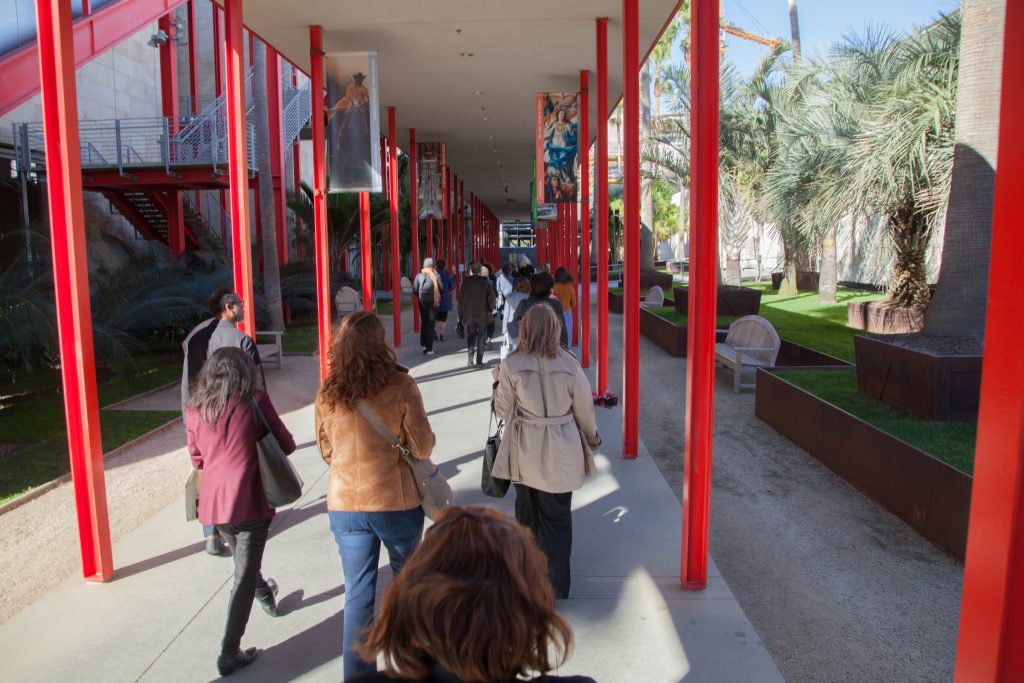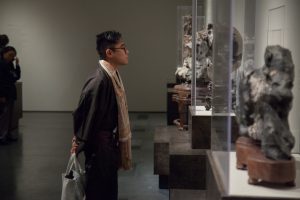CAA News Today
Finalists for the 2020 Morey and Barr Awards
posted by CAA — December 09, 2019
CAA is pleased to announce the 2020 finalists for the Charles Rufus Morey Book Award and two Alfred H. Barr Jr. Awards. The winners of the three prizes, along with the recipients of other Awards for Distinction, will be announced in January 2020 and presented during Convocation in conjunction with CAA’s 108th Annual Conference, taking place in Chicago, February 12-15, 2020.
The Charles Rufus Morey Book Award Shortlist 2020
Matthew Looper, The Beast Between: Deer in Maya Art and Culture, University of Texas Press, 2019
Alfred H. Barr Jr. Award Shortlist 2020
Esther Gabara, Pop América, 1965-1975, Duke University Press, 2018
Elizabeth Morrison, Book of Beasts: The Bestiary in the Medieval World, Getty Publications, 2019
Alfred H. Barr Jr. Award for Smaller Museums, Libraries, Collections, and Exhibitions Shortlist 2020
Tracy L. Adler, Jeffery Gibson: This is The Day, Prestel Publishing, 2018
The presentation of the 2020 Awards for Distinction will take place during CAA Convocation on Wednesday evening, February 12, 2020 from 6-7:30 p.m. in the Grand Ballroom at the Hilton Chicago. The event is free and open to the public. For more information about CAA’s Awards for Distinction, please contact nyoffice@collegeart.org
Now Accepting Applications for the Art History Fund for Travel to Special Exhibitions
posted by CAA — October 22, 2019
In August 2018, we announced that CAA had received a major anonymous gift to fund travel for art history faculty and their students to special exhibitions related to their classwork. After a successful inaugural year, we’re pleased to now be accepting applications for the second grant cycle of the Art History Fund for Travel to Special Exhibitions.
The fund is designed to award up to $10,000 to qualifying undergraduate and graduate art history classes to cover students’ and instructors’ costs (travel, accommodations, and admissions fees) associated with attending museum special exhibitions throughout the United States and worldwide. The purpose of the grants is to enhance students’ first-hand knowledge of original works of art.
Applications are due by January 15, 2020.
GUIDELINES
- These awards support student and instructor travel costs incurred while visiting museum special exhibitions in the United States and worldwide.
- Graduate and undergraduate art history classes are eligible to apply for funds to attend temporary museum exhibitions in the United States and other countries. Travel to see permanent collections is not eligible, nor would be performances and related ephemeral events. Exhibitions on any artist, period, or area of art history are eligible for funding.
- Awards are made directly to institutions whose institutional membership in CAA is in good standing.
- Applicant instructors must have individual membership in CAA and be in good standing.
- Funds may only be used to travel to exhibitions that correspond directly to the content of the class.
- The size of the class for which a grant may be awarded shall not be larger than fifteen (15) students.
- Awards may only be used for admission fees, travel and lodging expenses for the instructor and class members. Every attempt to attain group rates must be made.
Completed applications must include the following:
- Instructor’s curriculum vitae
- A course description and syllabus that identifies and explains the exhibition as part of the pedagogical aim of the course – Be sure to detail how the visit is integrated into the course (up to 500 words)
- An explanation of the instructor’s expertise in the subject matter of the exhibition (up to 250 words)
- A tentative itinerary of travel and lodging (up to 250 words)
- A budget detailing transportation and lodging expenses associated with traveling to and from the exhibition and lodging and admission costs, including an explanation of how any travel and accommodation funds in excess of the award will be raised
- A letter of support from the instructor’s department chair or dean
CRITERIA
- How well the exhibition fits within the pedagogical aim of the course.
- The scholarly merit of the exhibition.
- Financial need. Would the class not be able to visit the exhibition, otherwise?
AWARDS
Awards will not exceed $10,000 per class, per exhibition.
All travel must be completed between June 2020 – May 2021.
REPORTING
Awardees must submit a report of up to 1,000 words which explains in detail the benefits received and problems encountered in the course of travel to the exhibition for which support was received.
*Reports must be submitted to CAA no later than two months after the completion of travel.
ANNUAL CONFERENCE
Recipients of the award will be guaranteed a session at the subsequent CAA Annual Conference after their travel has ended. CAA will make the session available, but costs associated with attending the conference, including registration, membership, travel, and accommodation, will be the participants’ responsibility.
TIMELINE
The deadline for application materials is January 15.
Serve on the Millard Meiss Publication Fund Jury
posted by CAA — April 19, 2019
CAA invites nominations and self-nominations for individuals to serve on our Millard Meiss Publication Fund jury for four years (2019–23). Terms begin July 2019.
JURY VACANCIES FOR SPRING 2019
- Millard Meiss Publication Fund: two members
Duties and Qualifications
The Millard Meiss Publication Fund jury awards subsidies to support the publication of book-length scholarly manuscripts in the history of art and related subjects. Members review manuscripts and grant applications twice a year and meet in New York in the spring and fall to select the awardees. CAA reimburses jury members for travel and lodging expenses in accordance with its travel policy. Members volunteer their services to CAA without compensation. Candidates must be actively publishing scholars with demonstrated seniority and achievement; institutional affiliation is not required.
Candidates must possess expertise appropriate to the jury’s work and be current CAA members. They should not hold a position on a CAA committee or editorial board beyond May 31, 2019. CAA’s president and vice president for committees appoint jury members for service.
HOW TO APPLY
Nominations and self-nominations should include a brief statement (no more than 150 words) outlining the individual’s qualifications and experience and a CV (an abbreviated CV no more than two pages may be submitted). Please send all materials by email to Cali Buckley, CAA grants and special programs manager; submissions must be sent as Microsoft Word or Adobe PDF attachments. For questions about jury service and responsibilities, contact Tiffany Dugan, CAA director of programs and publications.
Deadline: May 13, 2019
Serve on a CAA Award Jury
posted by CAA — March 28, 2019
CAA invites nominations and self-nominations for individuals to serve on ten of the fourteen juries for the annual Awards for Distinction for three years (2019–22). Terms begin in May 2019; award years are 2020–22.
CAA’s fourteen awards honor artists, art historians, authors, curators, critics, and teachers whose accomplishments transcend their individual disciplines and contribute to the profession as a whole and to the world at large.
Candidates must possess expertise appropriate to the jury’s work and be current CAA members. They should not hold a position on a CAA committee or editorial board beyond May 31, 2019. CAA’s president and vice president for committees appoint jury members for service.
Jury vacancies for spring 2019:
- The Art Journal Award: two members
- Alfred H. Barr Jr. Award: three members
- Frank Jewett Mather Award for Art Criticism: one member
- Charles Rufus Morey Book Award: two members
- Arthur Kingsley Porter Prize: two members
- CAA/AIC Award for Distinction in Scholarship and Conservation: one member
- Distinguished Artist Award for Lifetime Achievement: one member
- Distinguished Lifetime Achievement Award for Writing on Art: two members
- Distinguished Feminist Award: one member
- Distinguished Teaching of Art Award: one member
Nominations and self-nominations should include a brief statement (no more than 150 words) outlining the individual’s qualifications and experience and a CV (an abbreviated CV no more than two pages may be submitted). Please send all materials by email to Cali Buckley, CAA grants and special programs manager; submissions must be sent as Microsoft Word or Adobe PDF attachments. For questions about jury service and responsibilities, contact Tiffany Dugan, CAA director of programs and publications.
Deadline: May 13, 2019
Meet the 2018 Professional Development Fellows
posted by CAA — January 28, 2019
CAA has awarded two 2018 Professional Development Fellowships—one in art history and one in visual art—to graduate students in MFA and PhD programs. In addition, CAA has named one honorable mention in art history and two in visual art. The fellows and honorable mentions both receive a complimentary one-year CAA membership and registration for the 2019 Annual Conference in New York City.
The recipient of the $10,000 fellowship in art history is C.C. McKee, a dual PhD candidate in the Department of Art History at Northwestern University and the École des hautes études en sciences sociales in Paris. Accepting the $10,000 fellowship in visual art is Camila Labarca Linaweaver, a MFA candidate in Printmaking at the University of Oklahoma.
The honorable mention for art history goes to Julia Vázquez, a PhD candidate in the Department of Art History & Archaeology at Columbia University. The honorable mentions in visual art are awarded to Kira Dominguez Hultgren, who is earning a MFA/MA in Fine Arts and Visual and Critical Studies at California College of the Arts, and Rowan Renee, who is currently pursuing their MFA at the University of Michigan.
The two fellows and three honorable mentions will be formally recognized at the 107th Annual Conference during Convocation on Wednesday, February 13, 2019.
CAA’s fellowship program supports promising artists and art historians who are enrolled in MFA and PhD programs nationwide. Awards are intended to help them with various aspects of their work, whether for job-search expenses or purchasing materials for the studio. CAA believes a grant of this kind, without contingencies, can best facilitate the transition between graduate studies and professional careers. The program is open to all eligible graduate students in the visual arts and art history. Applications for the 2019 fellowship cycle will open in the late spring.
FELLOW IN ART HISTORY
 C.C. McKee
C.C. McKee
C.C. McKee is a dual doctoral candidate in the Department of Art History at Northwestern University (advised by Huey Copeland) and the École des hautes études en sciences sociales in Paris (advised by Anne Lafont). McKee received his BA from the University of California, Berkeley as a double major with honors in the history of art and highest honors in history.
McKee’s current dissertation project takes up art and visual culture from the francophone Caribbean during the long nineteenth century, arguing that, on the one hand, painting could bolster imperial authority by eliding the coeval inhumane violence and ecological brutality of colonialism. On the other, these artworks are inadvertent repositories for parallel ecologies opening onto embodied African diasporic knowledge of the Caribbean landscape.
This project represents one facet of McKee’s broader investment in the transhistorical relationship between colonialism (particularly during the seventeenth through nineteenth centuries) and its continued effects in the present. These interests include, art of the Atlantic World, contemporary African and African diasporic art, and queer aesthetic practices; all of which are indebted to black feminist, ecocritical, postcolonial, and psychoanalytic theories. McKee has developed these perspectives in various pieces of art criticism; with exhibitions at the Block Museum, Iceberg Projects (Chicago, IL), and the Ghetto Biennale (Port-au-Prince, Haiti); as well as in a forthcoming article for Art Journal. Moving forward, McKee will pursue a scholarly and curatorial practice that challenges the boundaries between the university classroom and the museum, between academic publication and exposing a broad public to the rich artistic traditions of the Caribbean.
FELLOW IN VISUAL ART
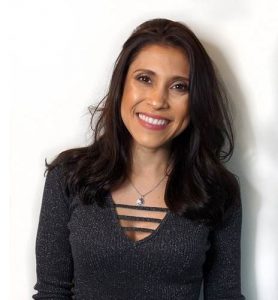 Camila Labarca Linaweaver
Camila Labarca Linaweaver
Camila Labarca Linaweaver was born in Santiago, Chile and immigrated to the United States at the age of 7. She lived and studied in Texas and holds a BFA from The University of Houston Clear Lake. She is a first-generation college graduate and is currently an MFA Printmaking candidate at The University of Oklahoma. While pursuing her graduate studies she has taught undergraduate courses in Printmaking and Drawing. Linaweavers focus within the printmaking medium is almost exclusively on singular and experimental prints. Using the landscape as a metaphor, she crafts narratives of immigrant displacement, loss, and alienation. Recently she has delved into time-based work, subjecting monotypes to various stop motion processes. Her unique approach to confronting her personal history as an immigrant results in highly nuanced imagery that aims to bridge opposing sides and create positive discourse within the context of global immigration issues.
As an emerging artist, Linaweaver has exhibited extensively throughout the US and has chosen to pursue a career in academia. In the future she aspires to participate in residencies and exhibitions that focus on community engagement and the intersection of landscape, identity, and culture.
HONORABLE MENTION IN ART HISTORY
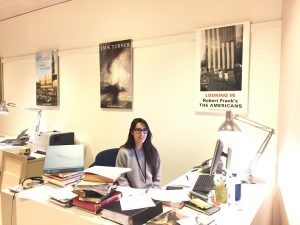 Julia Vázquez
Julia Vázquez
Julia Vázquez is a PhD candidate in the Department of Art History & Archaeology at Columbia University, where she is currently completing a dissertation titled “The Artist as Curator: Diego Velázquez, 1623-1660.” Her dissertation reconsiders the curatorial career of Diego Velázquez at the court of King Philip IV of Spain. It examines the major redecoration projects that Velázquez executed for galleries in the Spanish royal palace, considering the ways that his ambitions and interests as a painter found a new expression in this medium. It also analyzes significant paintings that Velázquez made in response to the royal art collection, considering the impact on his painting practice not only of its contents, but also of its display. Her research therefore proposes the career of Diego Velázquez at the Hapsburg court as a major episode in the history of the artist-curator, ultimately arguing that Velázquez’s simultaneous creative identities as painter to the king and curator of his art collection were mutually transformative.
Previously, Julia has held internships and fellowships at the Musée du Louvre, the Whitney Museum of American Art, the Meadows Museum, the Museo Nacional del Prado, and the National Gallery of Art. While at the Meadows, she curated two exhibitions: “Picasso’s Dream and Lie of Franco: The Spanish Civil War in Print” (summer 2017) and “Murillo at the Meadows: A 400th-Anniversary Celebration” (2017-2018). She is currently the Hilla Rebay International Fellow at the Solomon R. Guggenheim Museum, the Museo Guggenheim Bilbao, and the Collezione Peggy Guggenheim.
HONORABLE MENTIONS IN VISUAL ART
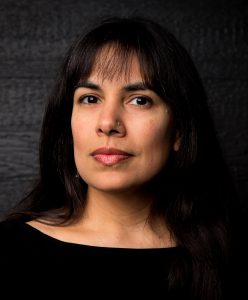 Kira Dominguez Hultgren
Kira Dominguez Hultgren
Kira Dominguez Hultgren (b. 1980) is a California-, Utah-, and Minnesota-based textile artist. She studied French postcolonial theory and literature at Princeton University (BA Comparative Literature, 2003), and performance and fine arts in Río Negro, Argentina from 2010-2012. While in Patagonia, she apprenticed with master weaver Mary Coronado, where Dominguez Hultgren studied the process and history of indigenous warp-faced weaving of Mallín Ahogado on a Mapuche vertical post loom.
Today, Dominguez Hultgren combines her interests in postcolonial theory and weaving in both her art and writing-research practice. In her third year at California College of the Arts, Dominguez Hultgren is earning a dual-degree MFA/MA in Fine Arts and Visual and Critical Studies. Her research interests include material and embodied rhetorics, loom technologies, decolonizing material culture, and analyzing textiles as a performative critique against the visual. She has won numerous awards including California College of the Art’s All College Honors Graduate Fine Art Award, the Edwin Anthony and Adalaine Boudreaux Cadogan Scholarship, and the Lenore Tawney Fiber and Material Studies Scholarship. Dominguez Hultgren is represented by Eleanor Harwood Gallery in San Francisco, where she had her first solo show, Wingspan, in 2018.
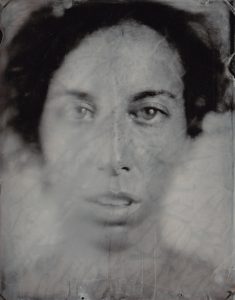 Rowan Renee
Rowan Renee
Rowan Renee is a genderqueer artist who uses photography to interrogate how sexual bodies are gendered, victimized, policed and punished. Through photographic, printmaking and sculptural techniques, they produce and appropriate images that intervene on issues of authorship, the representation of queer and feminine bodies within the art-historical canon, and the intersection of homophobia and misogyny in sex law and copyright law. The disjunctures of pleasure and abjection, felt through jouissance, informs their manipulation of images. Through artistic labor, they see a means to construct transformative meaning from experiences of violence, persecution and erasure that threaten queer and feminine subjects.
Currently pursuing their MFA at the University of Michigan, Renee works between Ann Arbor, Michigan and Brooklyn, NY. Their career began in 2006, when they joined The Miss Rockaway Armada, a collaborative flotilla of thirty people who floated down the Mississippi river on junk rafts built from NYC construction waste. Recently, they have received awards from the Aaron Siskind Foundation, the Rema Hort Mann Foundation and the Anchorage Museum of Art, as well as fellowships from the Jerome Foundation and the McColl Center for Visual Art. In 2018 they were named an Elsie Choy Lee Scholar by the University of Michigan. Their solo exhibitions include Z at Pioneer Works (2015), Bodies of Wood at The Aperture Foundation (2017), and No Honor No Heart at the Center for Visual Arts Toledo (2019). Their work has been profiled on NPR, in The New York Times, VICE, Hyperallergic, Huffington Post, American Photo Magazine and Guernica, among many other publications.
Announcing the 2019 Awards for Distinction Recipients
posted by CAA — January 17, 2019
Honorees this year include Howardena Pindell, Ursula von Rydingsvard, Anna C. Chave, Senga Nengudi, Nancy S. Steinhardt, Edward Sullivan, Molly Nesbit, and many other scholars, artists, authors, and teachers
CAA Annual Conference, New York City, February 13-16, 2019
CAA is pleased to announce the recipients and finalists of the 2019 Awards for Distinction. Awardees this year were chosen from a pool of scholars, artists, teachers, and authors who are constantly pushing our understanding of the visual arts. The CAA Awards for Distinction are presented during Convocation at the CAA Annual Conference on Wednesday, February 13 at 6:00 PM at the New York Hilton Midtown. The CAA Annual Conference runs from February 13-16, 2019.
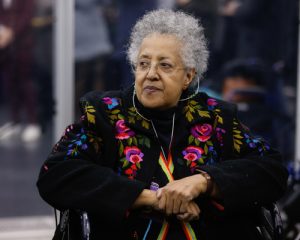
Howardena Pindell. Courtesy the artist and Garth Greenan Gallery.
Among the winners this year is Howardena Pindell, recipient of the 2019 Distinguished Artist Award for Lifetime Achievement. Pindell studied painting at Boston University and received her MFA from Yale University. Since 1979, she has been a professor of painting and conceptual drawing at SUNY Stony Brook University. Pindell is the recipient of a Guggenheim Fellowship, two National Endowment for the Arts grants, a Joan Mitchell Foundation grant, and a Studio Museum in Harlem Artist Award. In 1990, CAA awarded her the Most Distinguished Body of Work or Performance Award. Pindell’s work is in the permanent collection of the Metropolitan Museum of Art, the Museum of Modern Art, the Whitney Museum of American Art, the Yale University Art Gallery, the Fogg Museum at Harvard University, and the Rhode Island School of Design Museum, among many others.
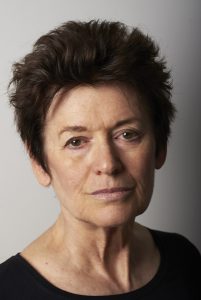
Ursula von Rydingsvard. Photo: Zack Garlitos
Ursula von Rydingsvard is the winner of the 2019 Artist Award for Distinguished Body of Work. Von Rydingsvard is best known for her unmistakable towering sculptures with mountainous topographic surfaces created from carved cedar wood. She has also explored other mediums in her work, such as bronze, paper, and resin. Over an artistic career spanning more than forty years, Von Rydingsvard’s work has been in solo exhibitions at Galerie Lelong, SCAD Museum of Art, the Philadelphia Museum of Art, and Dieu Donné. Her work has been included in numerous group exhibitions and is in the permanent collections of more than thirty museums. She is the recipient of a Lifetime Achievement Award from the International Sculpture Center, the Skowhegan Medal for Sculpture, a Joan Mitchell Foundation grant, and an Academy Award in Art from the American Academy of Arts and Letters, among other awards and recognitions. A major exhibition of her work, Ursula von Rydingsvard: The Contour of Feeling, was presented at the Fabric Workshop and Museum in Philadelphia (April 27 – August 26, 2018) and will travel to the National Museum of Women in the Arts in March 2019.
The Award for Excellence in Diversity recognizes the work of an individual or organization in the visual arts whose commitment to inclusion in scholarship or practice stands out as groundbreaking and unifying. The winner of the Award for Excellence in Diversity for 2019 is the Chicano Studies Research Center at UCLA. The work of the center entails five distinct areas: a library, an academic press, collaborative research projects, public programs and community partnerships, and a grant and fellowship program.
Each year, CAA awards two Distinguished Feminist Awards, one to a visual artist and one to a scholar. The two winners for 2019 are Senga Nengudi for visual artist, and Anna C. Chave for scholar.
The full list of 2019 CAA Awards for Distinction Recipients
Artist Award for Distinguished Body of Work
Ursula von Rydingsvard
Distinguished Artist Award for Lifetime Achievement
Howardena Pindell
Distinguished Teaching of Art Award
Susanne Slavick
Distinguished Feminist Award—Visual Artist
Senga Nengudi
Distinguished Feminist Award—Scholar
Anna C. Chave
Distinguished Teaching of Art History Award
Nancy S. Steinhardt
Edward Sullivan
Distinguished Lifetime Achievement Award for Writing on Art
Molly Nesbit
Award for Excellence in Diversity
Chicano Studies Research Center (CSRC)
Charles Rufus Morey Book Award
Zeynep Çelik Alexander
Kinaesthetic Knowing: Aesthetics, Epistemology, Modern Design
University of Chicago Press, 2017
Finalists
Olga Bush
Reframing the Alhambra: Architecture, Poetry, Textiles and Court Ceremonial
Edinburgh University Press, 2018
Linda Kim
Race Experts: Sculpture, Anthropology, and the American Public in Malvina Hoffman’s Races of Mankind
University of Nebraska Press, 2018
Carolyn Yerkes
Drawing after Architecture
Princeton University Press, 2017
Alfred H. Barr Jr. Award
Wendy Kaplan
Design in California and Mexico 1915–1985: Found in Translation
Los Angeles County Museum of Art, 2017
Finalists
Jeffrey Spier and Timothy Potts
Beyond the Nile: Egypt and the Classical World
J. Paul Getty Trust, 2018
Christophe Cherix
Adrian Piper: A Synthesis of Intuitions 1965–2016
Museum of Modern Art, 2018
Naoko Takahatake and Jonathan Bober
The Chiaroscuro Woodcut in Renaissance Italy
Los Angeles County Museum of Art, 2018
Cecilia Fajardo-Hill, Andrea Giunta, and Rodrigo Alonso
Radical Women: Latin American Art, 1960–1985
Hammer Museum, University of California, 2017
Alfred H. Barr Jr. Award for Smaller Museums, Libraries, Collections, and Exhibitions
Andrew C. Weislogel and Andaleeb Badiee Banta
Lines of Inquiry: Learning from Rembrandt’s Etchings
Herbert F. Johnson Museum of Art, Cornell University, 2017
Finalists
Patrick A. Polk, Roberto Conduru, Sabrina Gledhill, and Randal Johnson
Axé Bahia: The Power of Art in an Afro-Brazilian Metropolis
Fowler Museum at UCLA, 2018
Antonio Sergio Bessa and Jessamyn Fiore
Gordon Matta-Clark: Anarchitect
Bronx Museum of Art, 2017
Mark Sloan
Fahamu Pecou: Visible Man
Halsey Institute of Contemporary Art, 2016
Frank Jewett Mather Award for Art Criticism
Julia Bryan-Wilson
Fray: Art + Textile Politics
University of Chicago Press, 2017
Rebecca M. Schreiber
The Undocumented Everyday: Migrant Lives and the Politics of Visibility
University of Minnesota Press, 2018
Art Journal Award
Mara Polgovsky Ezcurra
“Beyond Evil: Politics, Ethics, and Religion in Léon Ferrari’s Illustrated Nunca más”
Art Journal, Fall 2018
Arthur Kingsley Porter Prize
Nathan T. Arrington
“Touch and Remembrance in Greek Funerary Art”
The Art Bulletin, September 2018
CAA/AIC Award for Distinction in Scholarship and Conservation
Karl D. Buchberg
Jodi Hauptman
Learn about the juries that select the recipients of the CAA Awards for Distinction.
Contacts
Nick Obourn, Director of Communications, Marketing, and Membership
nobourn@collegeart.org, 212-392-4401
Joelle Te Paske, Media and Content Manager
jtepaske@collegeart.org, 212-392-4426
IMAGES AVAILABLE UPON REQUEST
Hashtags: #CAA2019 #CAANYC
Finalists for the 2019 Morey and Barr Awards
posted by CAA — November 29, 2018
CAA is pleased to announce the 2019 finalists for the Charles Rufus Morey Book Award and two Alfred H. Barr Jr. Awards. The winners of the three prizes, along with the recipients of other Awards for Distinction, will be announced in January 2019 and presented during Convocation in conjunction with CAA’s 107th Annual Conference, taking place in New York, February 13-16, 2019.
Charles Rufus Morey Book Award
Zeynep Çelik Alexander, Kinaesthetic Knowing: Aesthetics, Epistemology, Modern Design (Chicago: University of Chicago Press, 2017)
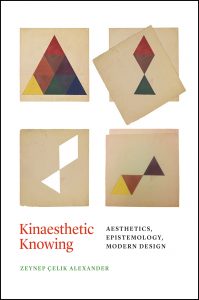
Olga Bush, Reframing the Alhambra: Architecture, Poetry, Textiles and Court Ceremonial (Edinburgh: Edinburgh University Press, 2018)
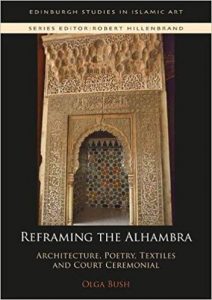
Linda Kim, Race Experts. Sculpture, Anthropology, and the American Public in Malvina Hoffman’s Races of Mankind (Lincoln: University of Nebraska Press, 2018)
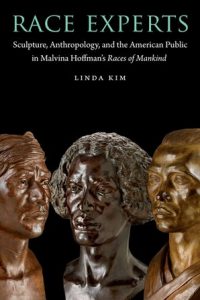
Carolyn Yerkes, Drawing after Architecture (Princeton: Princeton University Press, 2017)
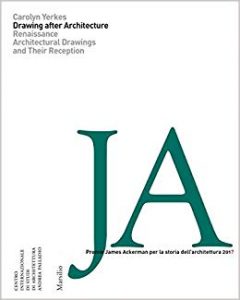
Alfred H. Barr Jr. Award
Christophe Cherix, Cornelia Butler, and David Platzker, Adrian Piper: A Synthesis of Intuitions 1965-2016 (New York: Museum of Modern Art, 2018)
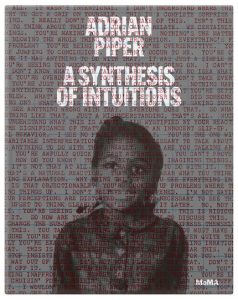
Jeffrey Spier and Timothy Potts, Beyond the Nile: Egypt and the Classical World (Los Angeles: J. Paul Getty Trust, 2018)
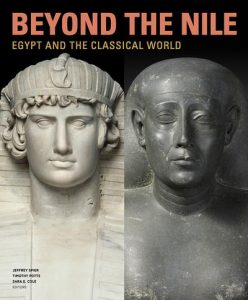
Naoko Takahatake and Jonathan Bober, The Chiaroscuro Woodcut in Renaissance Italy (Los Angeles: Los Angeles County Museum of Art, 2018)
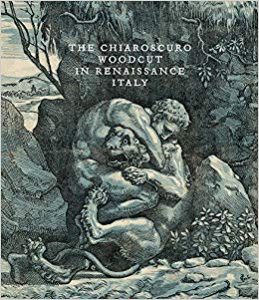
Cecilia Fajardo-Hill and Andrea Giunta, Radical Women: Latin American Art, 1960-1985 (Los Angeles : Hammer Museum, University of California, 2017)
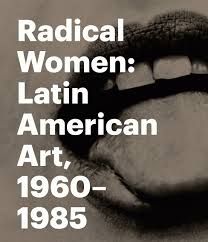
Wendy Kaplan, Design in California and Mexico 1915-1985: Found in Translation (Los Angeles: Los Angeles County Museum of Art, 2017)
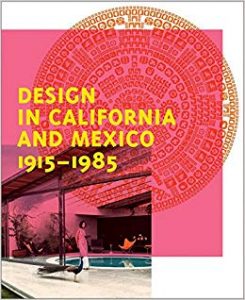
Alfred H. Barr Jr. Award for Smaller Museums, Libraries, Collections, and Exhibitions
Antonio Sergio Bessa and Jessamyn Fiore, Gordon Matta-Clark: Anarchitect (New York: The Bronx Museum of Art, 2017)
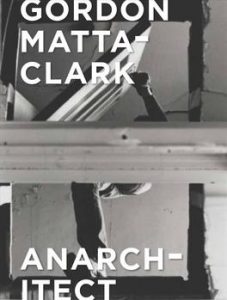
Andrew C. Weislogel and Andaleeb Badiee Banta, Lines of Inquiry: Learning from Rembrandt’s Etchings (Ithaca: Herbert F. Johnson Museum of Art, Cornell University, 2017)
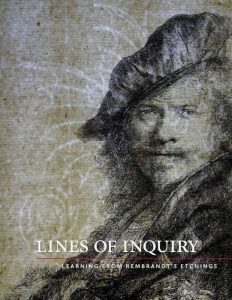
Mark Sloan, Fahamu Pecou: Visible Man (Charleston, SC: Halsey Institute of Contemporary Art, 2016)
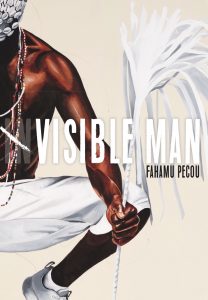
Patrick Arthur Polk, Axe Bahia: The Power of Art in an Afro-Brazilian Metropolis (Los Angeles: Fowler Museum at UCLA, 2018)
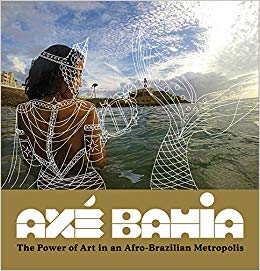
The presentation of the 2019 Awards for Distinction will take place on Wednesday evening, February 13, 2019 from 6-7:30pm in the Grand Ballroom East at the New York Hilton Midtown. The event is free and open to the public. For more information about CAA’s Awards for Distinction, please contact nyoffice@collegeart.org
Now Accepting Applications for the Art History Special Exhibition Travel Fund
posted by CAA — October 16, 2018
In August, we announced that CAA received a major anonymous gift of $1 million to fund travel for art history faculty and their students to special exhibitions related to their classwork. We’re pleased to now be accepting applications for the newly created Art History Special Exhibition Travel Fund.
The fund is designed to award up to $10,000 to qualifying undergraduate and graduate art history classes to cover students’ and instructors’ costs (travel, accommodations, and admissions fees) associated with attending museum special exhibitions throughout the United States and worldwide. The purpose of the grants is to enhance students’ first-hand knowledge of original works of art.
Applications are due by January 15, 2019.
GUIDELINES
- These awards support student and instructor travel costs incurred while visiting museum special exhibitions in the United States and worldwide.
- Graduate and undergraduate art history classes are eligible to apply for funds to attend temporary museum exhibitions (not exhibitions on permanent display) in the United States and other countries. Exhibitions on any artist, period, or area of art history are eligible for funding.
- Awards are made directly to institutions whose membership in CAA is in good standing. Applicant instructors must be individual members of CAA in good standing. Funds may only be used to travel to exhibitions that correspond directly to the content of the class. Ideally, classes will be no larger than fifteen students and planned to benefit from the special exhibition (for instance, a seminar on the subject of the exhibition).
- Awards may only be used for admission fees, travel and lodging expenses for the instructor and class members. Every attempt to attain group rates must be made.
Completed applications must include the following:
- An application form
- Instructor’s curriculum vitae
- A course description and syllabus that identifies and explains the exhibition as part of the pedagogical aim of the course
- An explanation of the instructor’s expertise in the subject matter of the exhibition
- A tentative itinerary of travel and lodging
- A budget detailing transportation and lodging expenses associated with traveling to and from the exhibition and lodging and admission costs, including an explanation of how any travel and accommodation funds in excess of the award will be raised
- A letter of support from the instructor’s department chair or dean
AWARDS
Awards will not exceed $10,000 per class, per exhibition.
ANNUAL CONFERENCE
Recipients of the award will be guaranteed a session at the subsequent CAA Annual Conference after their travel has ended. CAA will make the session available, but costs associated with attending the conference, including registration, membership, travel, and accommodation, will be the participants’ responsibility.
TIMELINE
The deadline for application materials is January 15, 2019.
CAA Receives Major Anonymous Gift to Support Art History Faculty and Students
posted by CAA — August 08, 2018
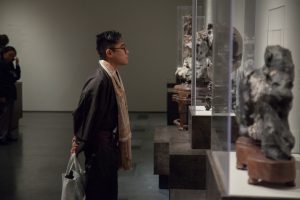
2018 CAA Annual Conference. Image: Rafael Cardenas
We are pleased to announce CAA has received a major anonymous gift of $1 million to fund travel for art history faculty and their students to special exhibitions related to their classwork. The gift will establish the Fund for Travel to Special Exhibitions, a new program to be administered and juried by CAA.
“This incredibly generous gift will not only support art history scholars and students for years to come, it is a powerful message to the visual arts field that their work is as important as ever,” said Hunter O’Hanian, CAA’s executive director. “The new Fund also reinforces CAA as the preeminent organization supporting and advancing professionals in the visual arts and design.”
Groundbreaking in its scope, the Fund for Travel to Special Exhibitions is intended exclusively to enhance the first-hand knowledge of original works of art. The Fund will support travel, lodging, and admission for art history students and faculty in conjunction with special museum exhibitions in the United States and throughout the world. Awards will be made exclusively to support travel to exhibitions that directly correspond to the class content. However, exhibitions on all artists, periods, and areas of art history are eligible.
Awards of up to $10,000 will be granted on a per project basis by a jury formed by CAA to oversee the Fund for Travel to Special Exhibitions.
Applications will be accepted by CAA beginning in fall 2018. All application criteria and information will be listed on the CAA website.
2018 Terra Foundation for American Art International Publication Grant Winners
posted by CAA — April 09, 2018
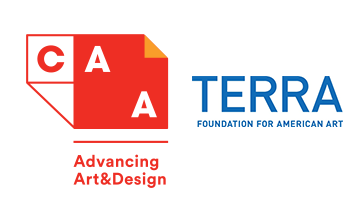
CAA is pleased to announce the 2018 recipients of the Terra Foundation for American Art International Publication Grant. This program, which provides financial support for the publication of book-length scholarly manuscripts in the history of American art, is made possible by a generous grant from the Terra Foundation for American Art. For this grant, “American art” is defined as art (circa 1500–1980) of what is now the geographic United States.
The seven Terra Foundation grantees for 2018 are:
Buquet, Benoît, Graphics: Art and design graphique aux États-Unis dans les anées 1960 et 1970, Les Presses Universitaires François-Rabelais.
Winner of the International Author Conference Subvention.
Chicago, Judy, Through the Flower—My Struggle as a Woman Artist, translated into French by Sophie Taam, Les Presses du Réel.
Hills, Patricia, Modern Art in the USA: Issues and Controversies of the 20th Century, translated into Chinese by Qiao Hu, Jiangsu Phoenix Fine Arts Publishing.
Mehring, Frank, Riding the Tidal Wave of Modernism: (Trans)National Approaches to the Artwork of Winold Reiss, Deutscher Kunstverlag.
Winner of the International Author Conference Subvention.
Sheehan, Tanya, Study in Black and White: Race, Photography, Humor, Pennsylvania State University Press.
Sutton, Gloria, Stan VanDerBeek’s Movie-Drome: An Experience Machine, translated into French. Preface by Philippe-Alain Michaud. Éditions B2.
Wells, K. L. H., Weaving Modernism: Postwar Tapestry Between Paris and New York, Yale University Press.
The International Author Conference Subventions confer two non-US authors of top-ranked books travel funds and complimentary registration to attend CAA’s 2019 Annual Conference in New York, February 13-16; they also received one-year CAA memberships.
The two author awardees for 2018 are:
- Benoît Buquet
- Frank Mehring



